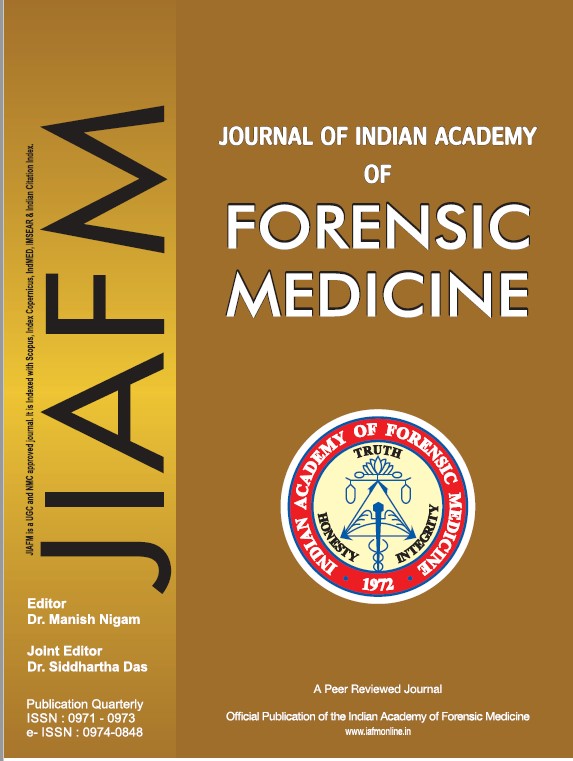Physician’s Perspectives about Consent in Medical Practice A Questionnaire Based Study
DOI:
https://doi.org/10.48165/Keywords:
Consent, Physician, Knowledge, Satisfaction, Training ProgrammeAbstract
It is a principle recognised not only by our own but by other legal systems that ignorance of the law is no excuse for violating it. Obtaining informed consent is act like a shield to protect a medical practitioner from litigation suits and claims and also help in maintaining autonomy of the patient. With this background, the study was aimed to assess knowledge and various other perspectives of medical fraternity regarding some aspects of consent. A cross sectional survey was conducted at Pramukhswami Medial College, Karamsad during the year 2009. Total 150 physicians in the institute were given questionnaire, asking for information about their knowledge & level of satisfaction. Out of which 117 physicians have responded. 68.42% physicians felt satisfied about their knowledge of consent in medical practice but 76.31% physicians responded that their knowledge about various aspects applicable to them is limited or nil. 54.39% physicians expressed that they knew validity of consent. 50% physicians were not clear what to do if relatives deny for giving consent in emergency situation. Medical practitioner should upgrade their knowledge regarding medical jurisprudence and legal medicine to avoid any litigation, by regular medicolegal training programmes.
Downloads
References
Section 13 of the Indian Contract Act, 1872.
Reddy KSN. The essentials of Forensic Medicine and Toxicology. 26th edition. Hyderabad: K Suguna Devi; 2007. P.41.
Section 90 of the Indian Penal Code, 1860
Daljit Singh. Informed vs. Valid Consent: Legislation and Responsibilities. Indian Journal of Neurotrauma (IJNT), Vol. 5, No. 2, 2008, Vol. 5, No. 2, pp. 105- 108
Purtilo RB. Applying the Principles of Informed Consent to Patient Care: Legal and Ethical Considerations for Physical Therapy. Physical Therapy. 1984. 64( 6); 934-937
Purtilo RB, Cassel CK. Ethical Dimensions in the Health Professions. Philadelphia, PA, WB Saunders Co, 1981; pp 67-68. 7. Bastia BK. Consent to treatment: practice vis-à-vis principle. Indian Journal of Medical Ethics. 3(3): 2008:113-114
The Supreme Court of India in a recent Judgment Samira Kohli vs. Dr. Prabha Manchanda & ANR, Appeal (civil) 1949 of 2004 (SC), 2008.
Section 87 of the Indian Penal Code, 1860
Section 89 of the Indian Penal Code, 1860
Section 92 of the Indian Penal Code, 1860
Christian P Selinger. The right to consent: is it absolute. BMJP. 2009: 2(2);50-54


